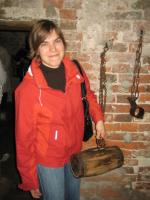Telling experts from spammers: expertise ranking in folksonomies
Proceedings of the 32nd international ACM SIGIR conference on Research and development in information retrieval, стр. 612--619. New York, NY, USA, ACM, (2009)DOI: 10.1145/1571941.1572046
Аннотация
With a suitable algorithm for ranking the expertise of a user in a collaborative tagging system, we will be able to identify experts and discover useful and relevant resources through them. We propose that the level of expertise of a user with respect to a particular topic is mainly determined by two factors. Firstly, an expert should possess a high quality collection of resources, while the quality of a Web resource depends on the expertise of the users who have assigned tags to it. Secondly, an expert should be one who tends to identify interesting or useful resources before other users do. We propose a graph-based algorithm, SPEAR (SPamming-resistant Expertise Analysis and Ranking), which implements these ideas for ranking users in a folksonomy. We evaluate our method with experiments on data sets collected from Delicious.com comprising over 71,000 Web documents, 0.5 million users and 2 million shared bookmarks. We also show that the algorithm is more resistant to spammers than other methods such as the original HITS algorithm and simple statistical measures.
Линки и ресурсы
тэги
сообщество
@aho- тэги данного пользователя выделены








